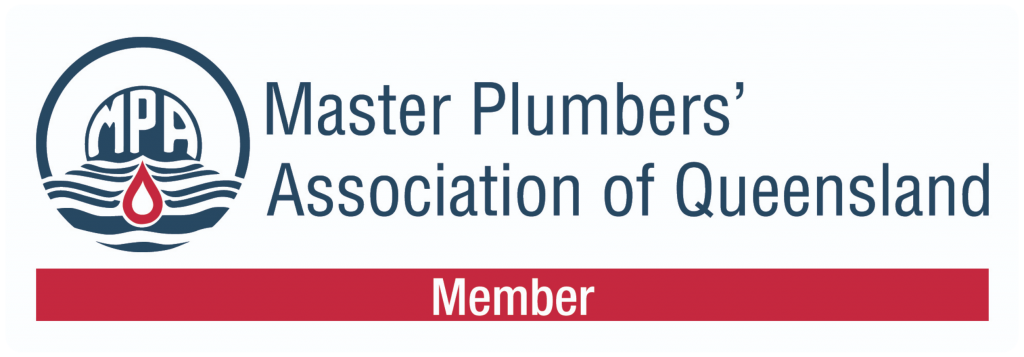Hot Water System
Unwanted Leaks? Blockages? Storm Damage? Gas Leaks? Burst Water Pipes? Whatever your plumbing emergency, we’ll fix it. Call us any time.
Gregors Plumbing can help with all your plumbing needs for hotwater system repairs, clogged drain, overflowing trough, leaky tap or shower, and any other plumbing problems that you might face, even a plumbing emergency.
Our team of skilled, licensed and experienced Sunshine Coast plumbers has allowed us to keep our 5-star reputation. Making us one the most prominent local plumbing companies in Sunshine Coast . When you call Sunshine Coast Plumbing, you will receive the best possible service.
It is important to find a local plumber who can help you quickly and at a reasonable price. We are available 24/7, 7 days per week, and our plumbers have the expertise to fix your plumbing issues. We are trustworthy, prompt, honest, and reliable.
Hot water systems
These are the key points
- Heating water for the laundry, kitchen, and bathroom consumes 25% to 25% of average household’s energy. It could be even higher in some households.
- Hot water systems could use gas, electricity or the sun for energy. There are many systems that can do this.
- You can save considerable energy and money by choosing an economical model that suits your house size and climate.
- High-performance solar hotwater systems and heat pump systems are more expensive to buy than the other options. However, they are less costly to run and produce fewer greenhouse gas emissions. There may be incentives available to reduce the purchase price.
- It is essential to place rooftop collectors so that solar heat can be accessed as efficiently as possible.
- Heat pumps don’t need rooftop collectors. This makes it ideal for those with limited access to solar. They can virtually eliminate greenhouse gas emissions if they generate electricity from a green power system or solar photovoltaic.
- It is possible to reduce the hot water consumption and save money. Low-flow showerheads can be used, as well as water-efficient appliances. You can also take shorter showers with eco-friendly settings.
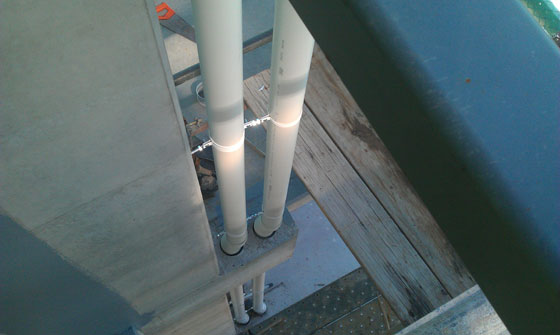
Licensed Gas Fitter & Plumber Noosaville
Gas fitting, installations, and gas leaks are dangerous jobs that should only be performed by licensed gas fitters. Sydney Plumbing Services includes…
- Installations for gas
- Gas fitting
- Inspection and service for connection
- Bayonet installations
- Gas stove installations
- Gas hot-water systems
- Gas Hot Water Installation Noosa
- Gas leak detection
- Line renewals
- Gas room heaters
- Gas cylinder fitters
- Gas leak detection and gas repair
- Gas heating and cooking
Understanding hot water systems
Australia’s largest source of household energy consumption is water heating. It is followed by cooling and heating appliances. 23% of Australian households use energy to heat water. But in some homes, it is much higher (DIS (2015)). Half of hot water usage is in the bathroom; a third is in laundry, and the rest in the kitchen.
Installing the right water heater for your household can help reduce greenhouse gas emissions, save money, and lower costs. You can also reduce your hot water use, which will help you save money.
- Water-efficient faucets and showerheads
- Mixer taps for cold water when hot water does not need to be used
- taking shorter showers
- Choose water-efficient devices
- You can use eco settings for dish and clothes washing.
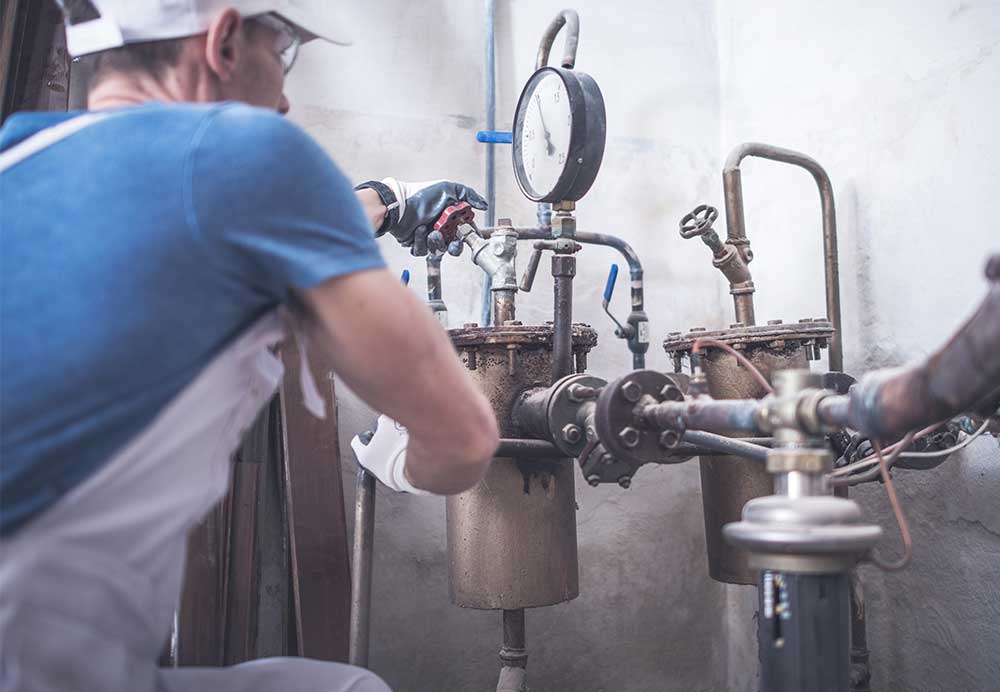
Continuous flow or storage
There are two main types of hot water systems. They are storage systems and continuous flow systems. Both can heat water from one or more sources including natural gas, electricity, and gas (LPG/natural gas).
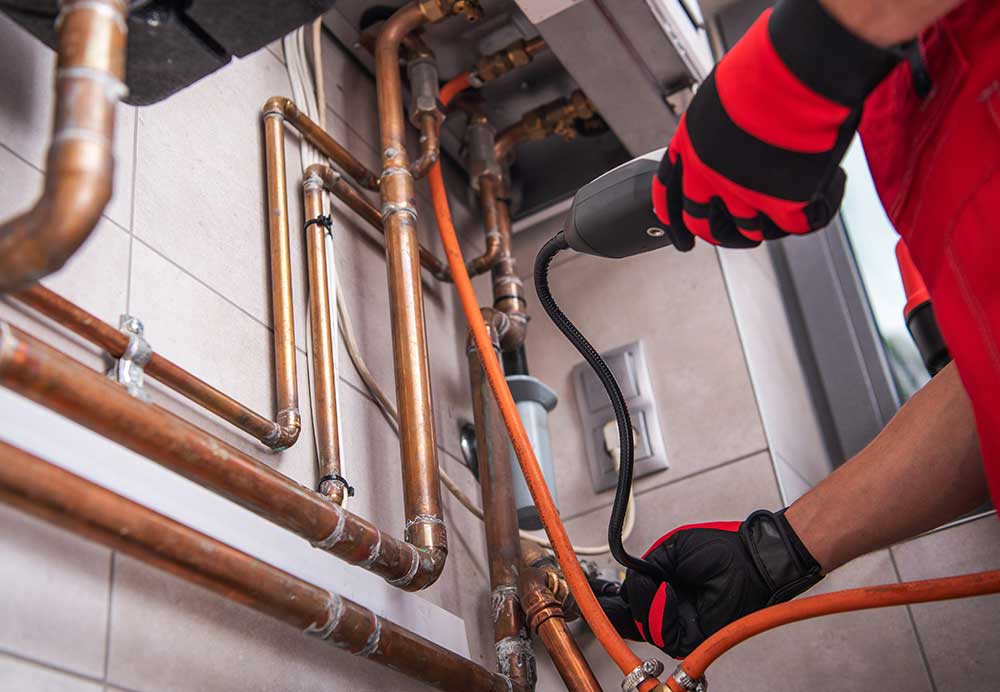
Storage water heating
Water is heated in a storage heater and stored in an insulated container for when it is needed. You can choose to have storage tanks made from copper, glass (enamel) lined or stainless steel. To prevent corrosion of copper or glass-lined tanks they often have a sacrificial aniode which must be replaced every few decades. Most tanks have a warranty of 5-10 years.
These systems can move water under mains pressure, or via a gravity feed tank (constant pressure).
Mains Pressure— Hot Water is delivered at the same pressure as cold water. Therefore, more than one outlet may be turned on without affecting water pressure. Generally, the storage tank can be found at ground level either inside or outside your house.
The constant pressure (or gravity feed) — Hot water is delivered to your house at a lower pressure that mains pressure via a tank in the roof. Pressure is dependent on the height difference between tank and point of use. Gravity feed systems can be used for properties with older properties or properties that are not connected to mains water.
The most common system is storage water heaters, but heat loss from storage tanks and associated fittings and pipes can make them less popular.
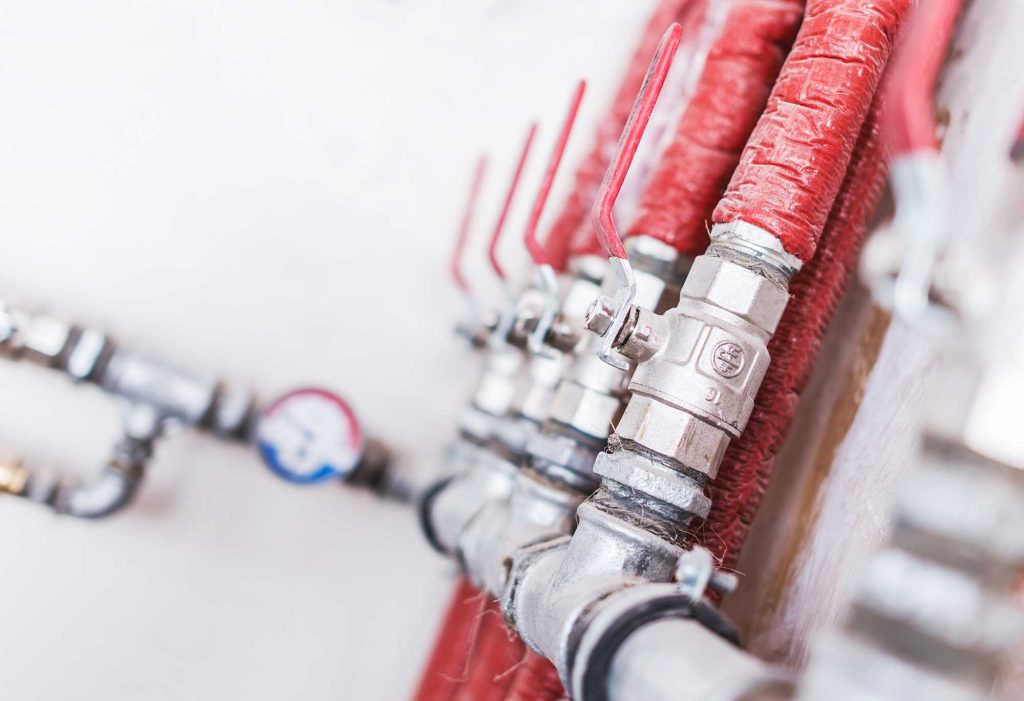
Continuous flow heaters
Continuous flow or instantaneous heat only the water that is required. They don’t require a storage tank so they do not experience the same heat losses or energy loss as storage systems. They can be powered by natural gas, LPG, and electricity. Gas models can be equipped with an electronic ignition system or a pilot torch. They can be mounted externally, or internally, if there is sufficient ventilation.
Continuous flow systems heat the water at its use, so they never run out. The temperature control options for continuous flow water heaters include temperature controls that allow you to set the water temperature at your point of use (e.g., in the shower). The water is not heated and the hot water doesn’t need to be mixed with cold water in order to reach the right temperature. This reduces heat buildup and minimizes the risk of burning or scalding. The heat-up and cool down losses that can be caused by using hot water in small amounts from a continuous flow network are however significant.
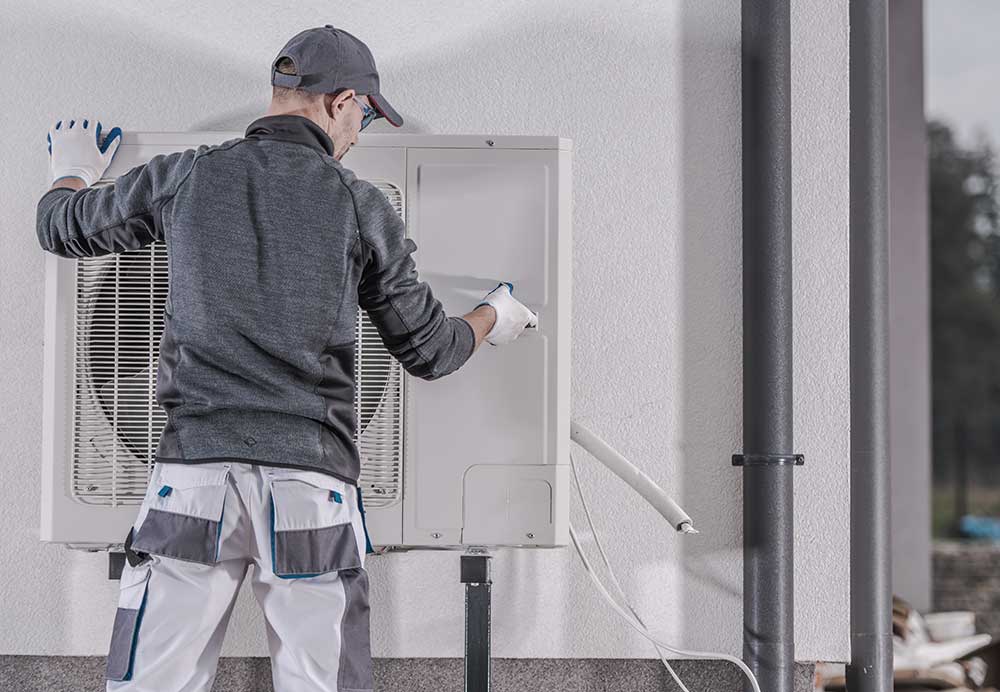
Heat pumps
Heat pumps are powered by electricity and move heat instead of creating heat directly. The heat pump hot water system uses less energy than the electric systems that heat the water directly.
While heat pump water heaters can be more expensive to purchase than hot water heating systems that directly heat water, they are also more energy efficient and can lower greenhouse gas emissions and energy bills.
The Australian Government offers small-scale technology certificates, (STCs), to help you pay for heat pumps. You can find more information about STCs on Clean Energy Regulator and how many you can claim for your product by using the online calculation. Your local government may offer additional incentives or energy saving programs. You can search for “heat pump” at Energy.gov.au.
Heat pumps don’t require roof-mounted collectors like solar hot water system. Heat pumps are also immune to overheating and water dumping during hot weather. The compressor shuts off when the stored water is at the required temperature. The outdoor heat pump has a fan that can generate noise so be aware of where it is located to minimize any potential impact on neighbors.
Running a heat pump can be more expensive if the compressor is being used on high cost electricity tariffs. There are many electricity tariffs that vary across the country. Certain heat pump water heater models may be more suitable for operation with limited hours tariffs.
Since heat pumps use electricity to power them, you should consider when to use the solar PV. Smart controllers also exist that can handle this task for you, even if the system doesn’t come with an inbuilt timer.
Types of heat pumps

Air-sourced Heat Pumps
Extract heat form the air to heat water. They work in reverse, just like a fridge. Ambient air is used for heating a refrigerant which then converts into a gas. The gas is compressed and expelled heat is transferred to water. The cycle is repeated until the refrigerant turns to a liquid.
The best climate for heat pumps from air is warm and humid. Refrigerants that are less capable of absorbing heat in colder climates reduce heat pump efficiency. But, heat pumps can be used in cold environments and when there is frequent freezing or low temperatures. A few heat pumps include an electric boost element to increase the water temperature in cold areas or during high hot water usage.
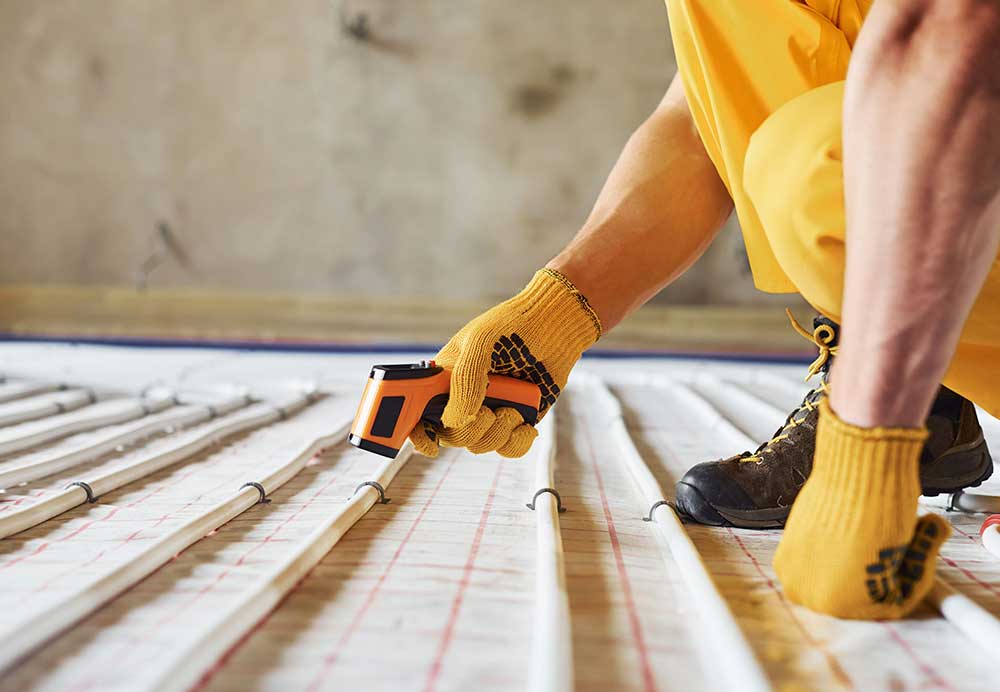
Ground source heat pumps
(also called geothermal heat pump) use heat from a shallow trench, waterbody, or deep bore instead of air. The use of electricity to pump water and refrigerant around a loop embedded in the ground or in a waterbody is called electricity. The heat is absorbed by the water contained within. These pumps are often used to heat water and space. A geothermal heat pump can produce over 4 units heat energy per unit of electrical energy. They are well-suited for multi-residential applications where space is limited and capital costs can easily be spread over multiple users.
Gas hot-water systems

Natural gas
Natural gas water heaters are less greenhouse-gas emitting than direct electric water heaters which draw non-renewable power from the grid. As a fossil fuel, however, gas produces more greenhouse emissions than electricity.
Gas storage systems are more efficient at heating the water in the tank and can generally be used with a smaller tank than comparable electric storage systems. Due to the burning gas flame, no insulation is provided at the bottom of the tank. You can also have very little insulation around the outer layers. This causes higher heat loss than hot water storage tank that uses other energy sources.
Instantaneous systems that heat the water in real time use instantaneous gases. This requires high gas flow rates in order to heat large amounts of water. In order to do this, it may be necessary for larger gas pipes to be installed and larger gas meters. Standard units may only supply enough hot water to 1 or 2 points, but high-performance units can supply multiple points at once.
Certain instantaneous-flow gas units can operate irregularly at low flow rates, especially if the inlet temperature is relatively high (for instance, in warm climates and when pre-warmed using solar) Their burners are unable to turn down sufficiently low to keep the water from boiling, so they stop working for safety. You may have to use some units with solar preheating, water-efficient showerheads, or solar preheating. Make sure to check with your plumber and other users of the same model.
Liquefied petroleum gas
Liquefied petroleum gasoline (LPG) systems are similar to natural gases systems but typically cost 2 to 3x more to operate.
Instantaneous types, particularly high power electronic controller models, require a larger gas supply pipeline. The supply pipe you have already installed to supply gas to a stove or room heatr will need to be replaced. It is important to determine what you intend to purchase before the gas supply line is installed. LPG units require 2 x 45kg gas containers to prevent gas bottles from being replaced frequently.
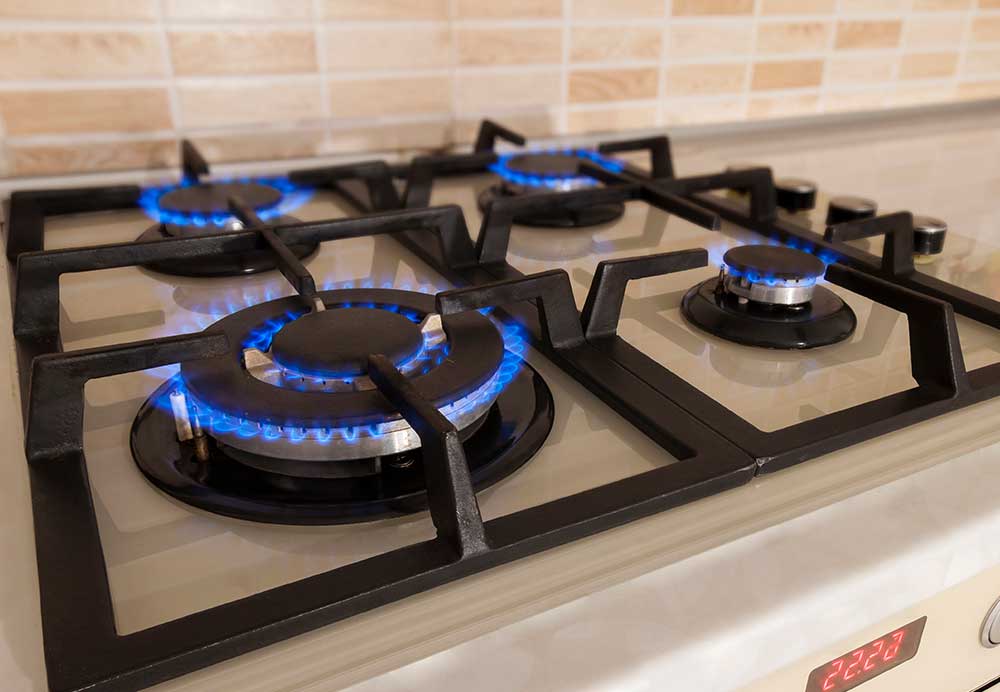
Hot water system with electric heater
The electric hot water system can be instantaneous or stored, and it may also be solar powered.
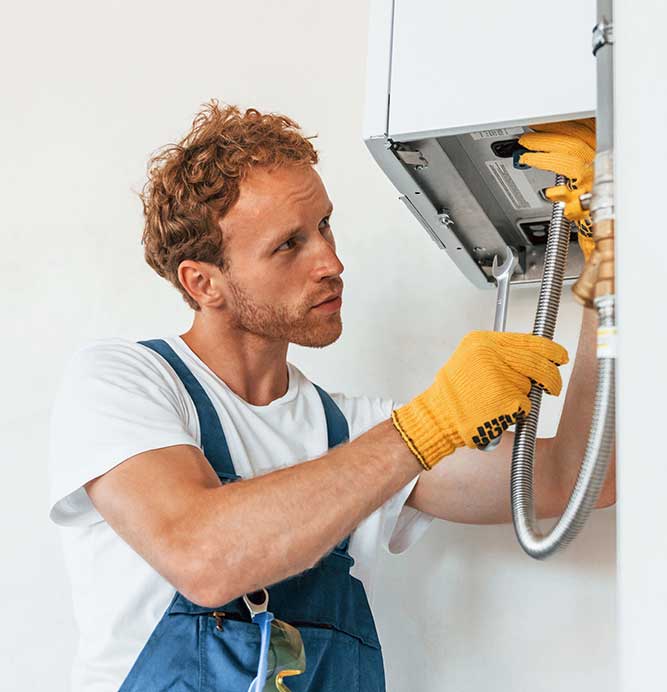
Heaters for electric storage
Australian Government requires that electric water heaters sold must meet minimum energy performance standards. Standard electric storage water heating heaters heat the water with a heating element in the tank.
Electric storage water heaters produce the most greenhouse gas emissions, even if they are not powered by solar PV systems. They also tend to be more expensive to operate than other types. This exception is Tasmania (currently in 2021), where due to the high percent of renewable energy in their grid, these systems produce less CO2 than comparable gas options. As the Australian electricity network decarbonises, water heater types that rely on electricity will see their carbon footprint decrease.
Larger electric storage water heaters connect to off-peak electricity tariffs where possible. These heaters heat water when electricity prices are lowest (usually overnight, or early morning).
Solar PV can be combined with electric storage water heaters to reduce energy use. Refer to Electrical PV hot water systems.
How to choose and use a hot water system
There are many things to consider when selecting a system
You may only make this decision once in your entire life. It is worth taking the time to research all options so that you can find the right system for you.
Many people are forced to make this decision after their current system fails, or when they don’t have the time to do thorough research on all options. It is worth taking the time to review all options if you have an older system. This will allow you to make an informed decision should you need to purchase in a short time.
Choose a hot water system that meets your needs, your location, and your budget. Consider:
- Household size – The size of your hot water system will depend on how many people live in your house and what hot water consumption habits you have (e.g., whether all of your household members shower at the same hour or use the dishwasher, washing machine and bath simultaneously). One person typically uses 50 litres of hotwater per day. However, you should assess your situation before making any decisions.
- cost – both the purchase and ongoing costs of your hot water heating system should be taken into consideration. Your water heater’s energy consumption will have an impact on your energy bills for many years. So think carefully before you buy. A hot water system that is efficient can increase the home’s resale price.
- Space Available – It may not be possible for some systems to be installed in existing homes because of a limited space or difficult layout.
- Existing water heater – Some existing hot water systems could be made more sustainable. You can attach standard electric storage systems to a split system such as a heatpump or solar hotwater unit.
- Available Energy Sources – Your choice may be restricted by the availability of energy sources. If you want to install a solar hot-water system, you will need access to sunlight and roof space that faces north. Some areas are not eligible for natural gas.
- Local Climate — Sunny locations with high solar radiation enable solar hot water systems operate at their best.
- greenhouse gas emission — The amount of carbon dioxide generated by your hot-water system is dependent on:
– Greenhouse gas intensity of the energy source (e.g., electricity or natural gas).
Efficiency of the hot water appliance
– Solar radiation available for solar hot water systems
Heat available in the ambient air to heat a heat pump hot-water system
– Heat loss from hot water storage tanks, fittings and pipes to the outdoor air
The volume and time of hot water consumption. - A large central solar water heater (or multiple shared ones) can be combined with gas boosters or small, highly insulated electric storage tanks.

Safety
Hot water storage tanks for residential buildings must reach a temperature of at least 60 degrees Celsius to prevent the growth bacteria that can be harmful to human health, like Legionella.
However, water boiling at 60°C will result in a skin burn within 5 seconds. Hot water burns can be prevented by reducing the water’s temperature to 50°C. A tempering valve, or a thermostatic mix valve, can be installed to provide hot water at a controlled temperature. A tempering valve must be installed in all hot water systems to maintain a water temperature of 50 degrees Celsius.
This exception applies to schools, early childhood centers, and nursing homes. These facilities have a 45degC hot water delivery temperature limit.
How long it takes for skin’s to sustain a major burn or scald from water at different temperatures
Conserving water and energy
You can save money on your hot water and reduce greenhouse gas emissions by reducing it. This is true regardless of what kind of water heater you use.
Make a change in your life
Take shorter showers. You can remind your family members to use less water and to conserve energy by setting a shower alarm.
The mixer tap can be moved to the cold position if you do not require hot water or use it only occasionally. Mixer taps that are in the middle position can increase hot-water use because they combine hot and cold water.
It is important to immediately fix any leaking hot water faucets or appliances. The relief valve reduces the pressure in storage water heaters. A bucket placed under the valve should fill in within one day.
Using intelligent products
Showering takes the most water out of an average household. The most efficient showerheads are 3-star-rated, meaning they use less water. This can be cut by around half. For showerheads that are water efficient, incentives or rebates may be available from the state. To find out more, go to Energy.gov.au.
Make sure the continuous flow water heater is compatible with your water-efficient Showerhead. Make sure to check with the heater manufacturer.
Some instantaneous systems include a volume alarm. This allows the user to be notified when a certain amount of hot water has been delivered. This can help save you energy and water.
Purchase washing machines or dishwashers that offer a cold- or economy-cycle option. Make sure you use them as much as possible. Use the machines only when they are full.
Insulate all hot water pipes and insulate any hot water storage tank.
Edit your settings
To prevent the growth harmful bacteria such as Legionella from causing harm, keep the temperature of your hot-water storage system at least 60 degrees C. Do not set it higher than this as it will consume energy unnecessary.
You should set your continuous flow hot-water systems to 50 degrees C. If the temperature is higher than this, it means that energy has been wasted.
While on vacation, you should turn off the hotwater system. When you get back, however, it is important to make sure that the water has been heated up and kept at 60°C for at least 35 mins before you use it. This will kill any bacteria. It can take several hours for the water temperature to rise above 60°C.
Recommended. Very professional. Gregors previously helped out my wife with a bathroom plumbing problem when I was away. She told me that they were prompt and polite. Fixed the problem immediately. So I decided to get Gregors to fix an issue that others could not. Lachlan sorted it in just over an hour (including going out to get parts). Nice, clean job, polite and pleasant. Reasonable prices too.
PLUMBING EMERGENCY?
CALL US NOW ON 0499 307 696 | 07 5473 0527 or EMAIL info@gregorsplumbing.com.au
Unwanted Leaks? Blockages? Storm Damage? Gas Leaks? Burst Water Pipes? Whatever your plumbing emergency, we’ll fix it. Call us any time.


